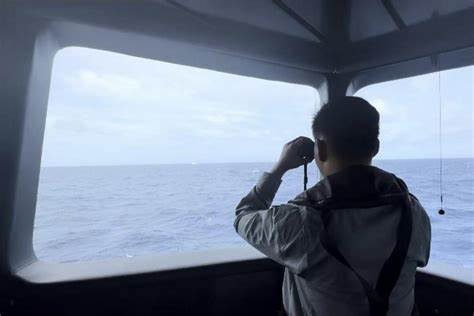Jakarta, Oct 24 – Indonesian patrol ships successfully repelled a Chinese coast guard vessel for the second time in four days after it disrupted a seismic survey in a disputed area of the South China Sea, Indonesian authorities announced on Thursday.
The Chinese ship had approached the MV Geo Coral, which was conducting a seismic data survey for Indonesia’s state energy company, PT Pertamina. The survey took place in waters within Indonesia’s exclusive economic zone (EEZ), an area also claimed by China under its controversial “nine-dash line,” which demarcates much of its territorial claims in the South China Sea.
Indonesia’s Maritime Security Agency reported that the Chinese coast guard vessel, CCG 5402, was first detected near the MV Geo Coral on Monday. When contacted by an Indonesian patrol ship, the Chinese crew asserted that the area fell under China’s jurisdiction. In response, Indonesian patrol and navy ships moved to drive the Chinese vessel away.
The agency further noted that the Chinese ship reappeared at the site on Thursday morning, ignoring hails from the Indonesian coast guard. Once again, Indonesian ships intervened and drove the vessel away.
The standoff comes amid ongoing tensions over the South China Sea, where China’s sweeping maritime claims frequently overlap with the EEZs of neighboring nations, including Indonesia. Despite a 2016 international arbitration ruling invalidating much of China’s claims, Beijing continues to maintain its stance, fueling disputes with several Southeast Asian countries.
“Indonesia’s Maritime Security Agency will maintain intensive patrols in the North Natuna Sea to ensure the safety of seismic survey activities and protect Indonesia’s sovereignty,” the agency said in a statement.
Incidents involving Chinese ships in disputed waters have become increasingly common, heightening tensions in the region, particularly with maritime rivals like the Philippines and Vietnam. The area near the Natuna Islands, where Thursday’s incident occurred, is regularly patrolled by Chinese vessels, which China claims based on “traditional fishing rights.”

